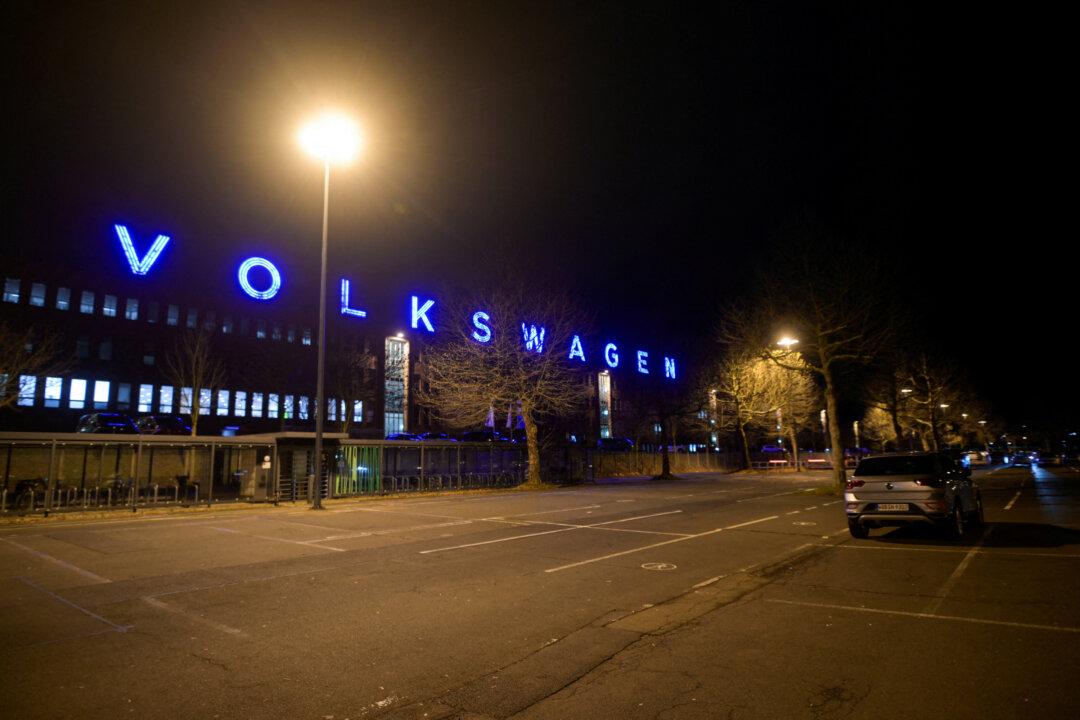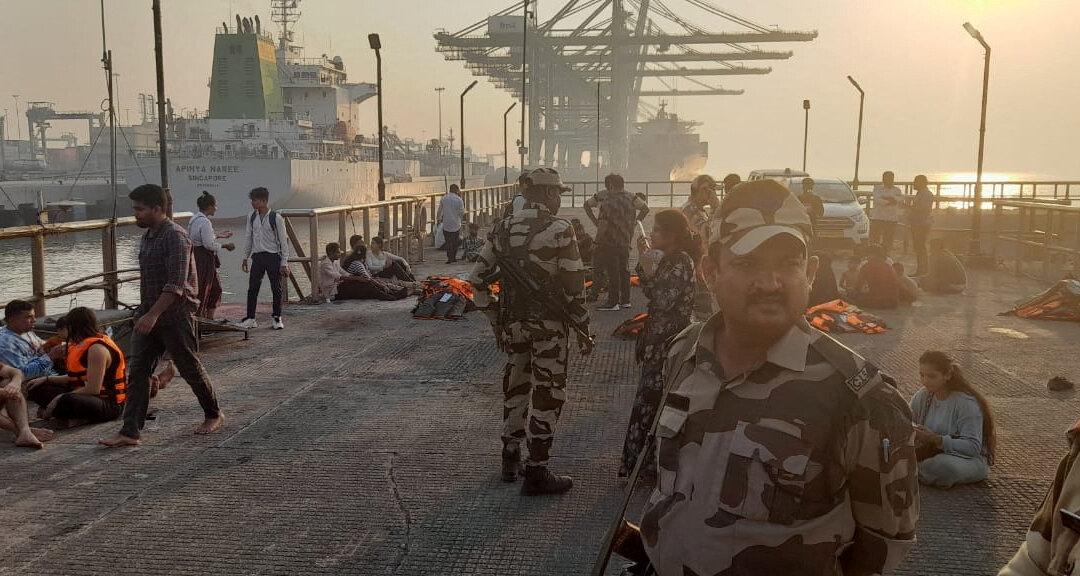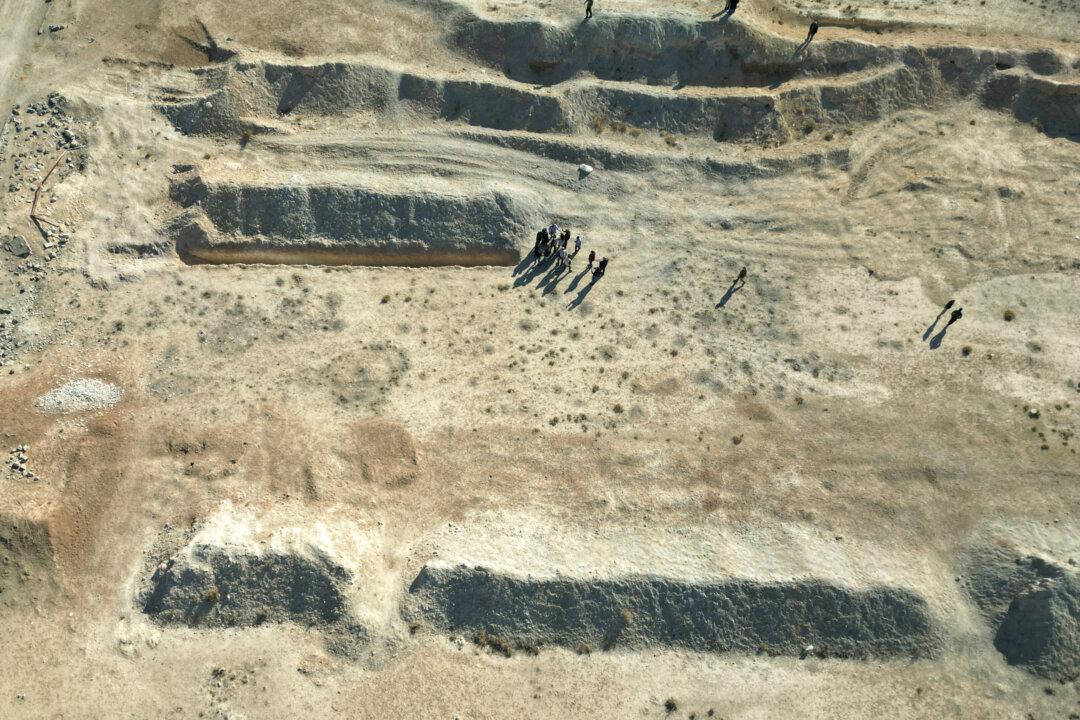HONG KONG/NEW YORK—Persistent default fears eclipsed efforts by China Evergrande Group’s chairman to lift confidence in the embattled firm on Tuesday, as Beijing showed no signs it would intervene to stem any domino effects across the global economy.
Analysts played down the threat of Evergrande’s troubles becoming the country’s “Lehman moment,” though concerns about the spillover risks of a messy collapse of what was once China’s top-selling property developer have roiled markets.
In an effort to revive battered confidence in the firm, Evergrande Chairman Hui Ka Yuan said in a letter to staff the company is confident it will “walk out of its darkest moment” and deliver property projects as pledged.
In the letter, coinciding with China’s mid-autumn festival, the chairman of the debt-laden property developer, also said Evergrande will fulfil responsibilities to property buyers, investors, partners, and financial institutions.
“I firmly believe that with your concerted effort and hard work, Evergrande will walk out of its darkest moment, resume full-scale constructions as soon as possible,” said Hui, without elaborating how the company could achieve these objectives.
Investors in Evergrande, however, remained on edge.
Its shares fell as much as 7 percent, having tumbled 10 percent in the previous day, on fears its $305 billion in debt could trigger widespread losses in China’s financial system in the event of a collapse. The stock ended down 0.4 percent.
Other property stocks such as Sunac, China’s No. 4 developer, and state-backed Greentown China on Tuesday recouped some of their hefty losses in the previous session. The Hong Kong property sector index rose nearly 3 percent.
“We are uncertain of how far and how strong the ripple effect would be on the housing market and the developer industry,” analysts at Deutsche Bank said in a recent note. “We think investors should remain on the sideline until there is more clarity.”
Fund giant BlackRock and investment banks HSBC and UBS have been among the largest buyers of Evergrande’s debt, Morningstar data showed.
BlackRock added 31.3 million notes of Evergrande’s debt between January and August 2021, while HSBC increased its position by 40 percent through July, according to Morningstar. UBS increased its position by 25 percent through May, the latest date available in the fund tracker’s database showed.
The Chinese regime has been largely quiet on the crisis at Evergrande in recent weeks.
“There must be negotiations behind the scenes about a systemic recapitalization (of Evergrande) by state proxies,” said Andrew Collier, managing director of Hong Kong-based Orient Capital Research.
“If one piece of Evergrande’s debt is allowed to default, it would trigger questions about all of their remaining debt from investors and the government doesn’t want a wider crisis like that,” he said.
World stocks stabilized somewhat on Tuesday and oil prices recovered from the previous day’s heavy selling, as investors grew more confident that contagion from the distress of Evergrande would be limited.
Hedge fund managers contacted by Reuters said they were not yet concerned about any contagion risk into other equities markets.
“From our perspective, we … do not see any potential fundamental long-term effects on our portfolio companies,” said one London-based hedge fund professional. However, “there could likely be a lot of volatility around this one in the short term.”
A default by Evergrande has been widely anticipated by some corners of the market.
“I would characterize Evergrande as a telegraphed and controlled detonation,” said Samy Muaddi, the portfolio manager of the $5.1 billion T. Rowe Price Emerging Markets Bond fund, who does not have a position in the company. “If an investor was still investing in Evergrande they were investing against Chinese policy makers, which is a good way to lose.”
However, the spillover concerns at least in the property sector remained. S&P Global Ratings downgraded Sinic Holdings to ‘CCC+’ on Tuesday, citing the Chinese developer’s failure “to communicate a clear repayment plan”.
Hong Kong-listed shares of small-sized Chinese developer Sinic plunged 87 percent on Monday, wiping $1.5 billion off its market value before trading was suspended.
A major test for Evergrande comes this week, with the firm due to pay $83.5 million in interest relating to its March 2022 bond on Thursday. It has another $47.5 million payment due on Sept. 29 for March 2024 notes.
Both bonds would default if Evergrande fails to settle the interest within 30 days of the scheduled payment dates.
“I think (Evergrande’s) equity will be wiped out, the debt looks like it is in trouble and the Chinese government is going to break up this company,” said Andrew Left, founder of Citron Research and one of the world’s best known short-sellers.
Spillover Risks
The Chinese regime will help Evergrande at least get some capital, but it may have to sell some stakes to a third party, such as a state-owned enterprise, Dutch bank ING said in a research note.“The spin-off of non-core businesses, for example, those that are not residential real estate type businesses, will probably be done first,” wrote Iris Pang, ING’s Chief Economist, Greater China.
“After that could come sales of stakes that are at the core of Evergrande’s business,” Pang said.
Citi analysts in a research note said that regulators may “buy time to digest” Evergrande’s non-performing loan problem by guiding banks not to withdraw credit and extend the interest payment deadline.
Still, Citi said that while Evergrande’s default crunch was a potential systemic risk to China’s financial system, it was not shaping up as “China’s Lehman moment.”
At the same time, the U.S. market is in a better position to absorb a potential global shock from a major company default compared with the years prior to the 2007–2009 financial crisis, Securities and Exchange Commission (SEC) chair Gary Gensler said on Tuesday.
In any default scenario, Evergrande, teetering between a messy meltdown, a managed collapse, or the less likely prospect of a bailout by Beijing, will need to restructure the bonds, but analysts expect a low recovery ratio for investors.
S&P Global Ratings said in a report on Monday it does not expect Beijing to provide any direct support to Evergrande.
“We believe Beijing would only be compelled to step in if there is a far-reaching contagion causing multiple major developers to fail and posing systemic risks to the economy,” the rating agency said.
“Evergrande failing alone would unlikely result in such a scenario,” S&P said.





